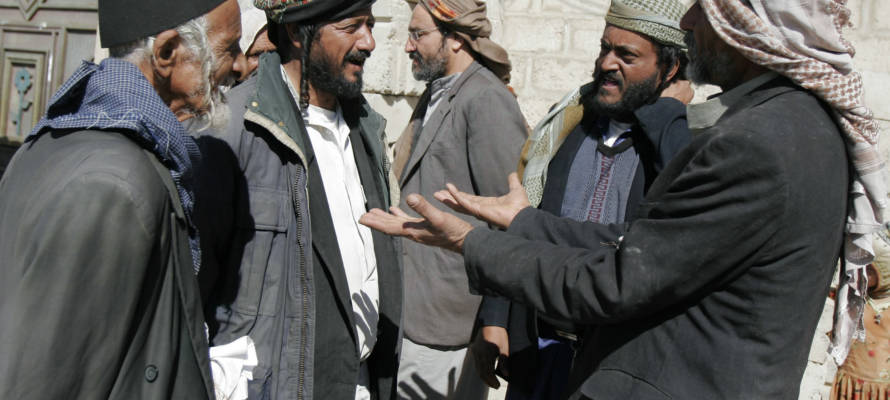The annual State Department report on global religious freedom paints a startling picture of Jewish life in the Middle East and how Jews in Muslim countries are oppressed by authorities and locals.
By: The Algemeiner
A recent US State Department report on religious freedom around the world paints a disturbing picture of Jewish life in the Middle East.
The annual “International Religious Freedom Report,” which analyzes levels of religious freedom around the world, was highly critical of Muslim countries and their often oppressive laws and actions against minorities.
In Algeria, non-Sunni Muslims and people of other religions, including Christians and Jews, “often kept a low profile” after coming under threat or experiencing intolerance, the report said. Antisemitic anti-Zionism was also found among government leaders, including the Algerian president’s chief of staff, who accused a rival of trying to “help the Zionists” and “selling Algeria to the Jews.”
In Afghanistan, the report listed only one Jewish person as a resident of the country.
In Iran, the regime continued its practice of “restrictions and discrimination against Jews.” According to the Tehran Jewish Committee, the principals of Jewish schools are required to be Muslim and schools must remain open on Saturdays, “in violation of Jewish religious law,” the report said. While the government supposedly allows Hebrew instruction in Jewish schools, the distribution of Hebrew texts, “particularly nonreligious texts,” are limited, “making it difficult to teach the language.”
In Yemen, the Jewish community’s predicament is even more dire. Locals in Amran continue their “harassment of Jewish community members,” the report said, “including by throwing stones and coercion to convert to Islam.” Out of fear for their lives, Jewish students continue to stay away from public schools even as attempts to establish private Jewish schools are blocked.
The media in Muslim majority countries, the report found, plays a large role in contributing to antisemitism and antisemitic forms of anti-Zionism.
The Egyptian government, the report said, “generally failed to take action against or condemn antisemitic comments that appeared in both government-owned and private media.”
“Talk show hosts occasionally approved the killing of Jewish civilians and failed to distinguish between Jews and supporters of Israeli policies in broadcasts critical of such policies,” the report explained. “Private Salafist media sometimes included antisemitic programming that glorified or denied the Holocaust, including in interviews with academics and clerics. There were reports of imams using antisemitic rhetoric in their sermons, including allegations that Jews were responsible for the ‘spilled blood’ of Muslim Palestinians.”
In Turkey, an antisemitic film — which “paints the Jews as the country’s biggest enemy” — was “broadcast repeatedly on private television channels and posted on the websites of several pro-government media outlets,” the report found.
In Jordan, editorial cartoons, articles and public statements by politicians echoed antisemitic tropes and “conflated anti-Israel sentiment with antisemitic sentiment.” In Saudi Arabia, Jews are continually portrayed using “stereotypical images…along with Jewish symbols, particularly at times of heightened political tension with Israel.”
In the country’s legal system, Jews in Saudi Arabia are also largely discriminated against. For example, should a court rule in favor of a Jew in a case of compensation for accidental death or injury, the Jewish plaintiff “is entitled to receive only 50 percent of the compensation a Muslim male would receive,” the report said.
The findings of the State Department’s report, covering the year 2015, are in line with the general rise in global anti-Semitism and violent acts of Jew-hatred.
